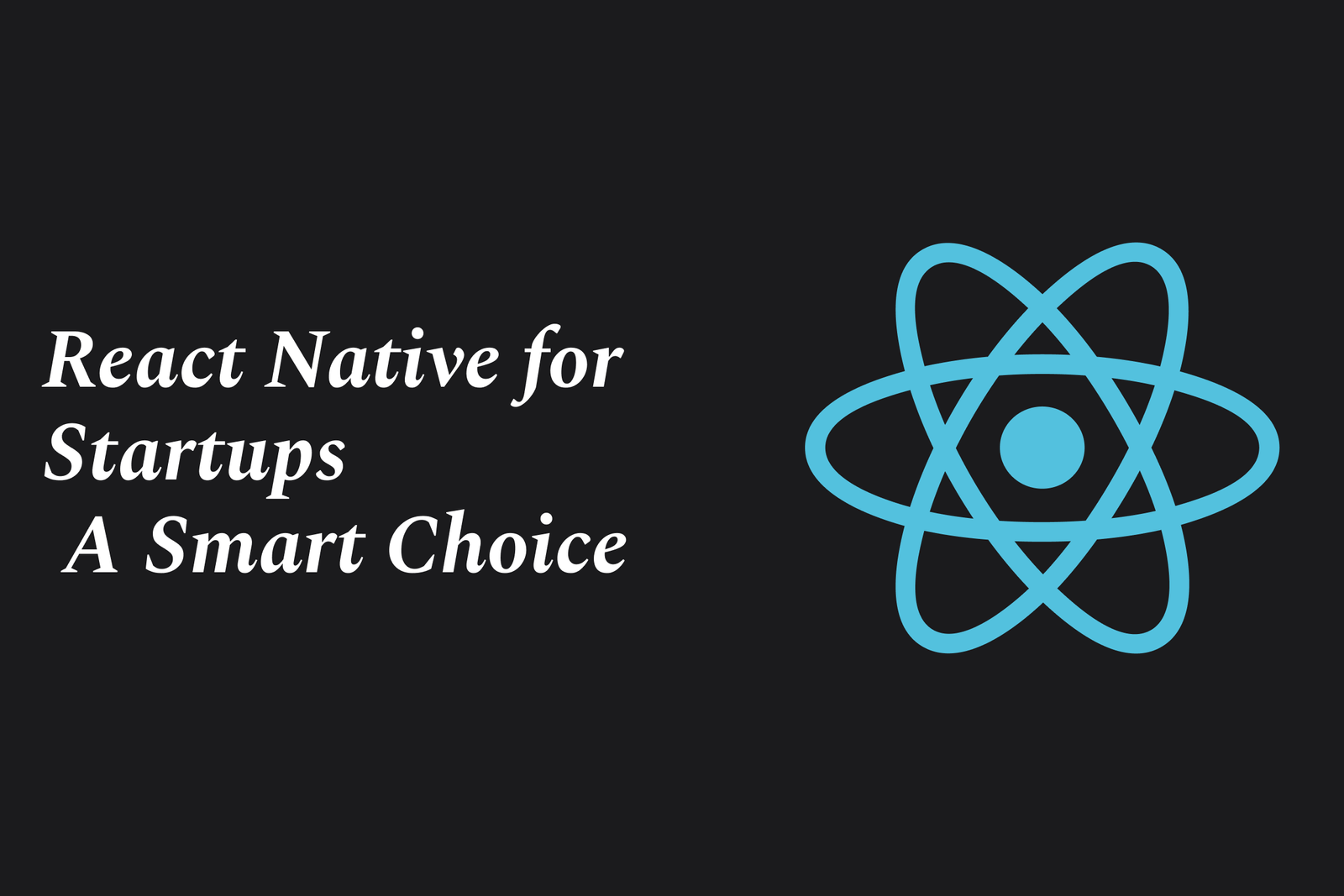React Native for Startups: A Smart Choice
React Native is a powerful framework that enables startups to build cross-platform mobile apps using a single JavaScript codebase, cutting costs and development time while delivering near-native performance—making it a smart, efficient choice for fast-paced startup growth.
React Native for Startups: A Smart Choice
1 ) Introduction to React Native for Startups
In the rapidly evolving tech landscape of 2025, startups must adopt agile and cost effective solutions for mobile app development. React Native emerges as a strategic, open source framework created by Meta, enabling startups to build cross platform apps efficiently by using a single JavaScript codebase compatible with both iOS and Android devices. This approach significantly reduces development complexity and cost, making it a smart choice for startups aiming for quick market entry and scalability.
2 ) Advantages of Using React Native for Startups
Startups benefit substantially from React Native due to its alignment with resource constraints and growth ambitions. The key advantages include:
1 ) Cost Effectiveness:
React Native’s single codebase reduces the need for separate Android and iOS development teams, resulting in significant cost savings. Being open source, it offers free resources and streamlined maintenance, which further lowers expenses.
2. Cross platform Development:
With write once, run anywhere capability, startups can launch simultaneously on both major mobile platforms, accelerating development timelines and ensuring a broader user reach without inflated budgets.
3. Enhanced User Experience (UX):
React Native apps utilize native components, ensuring near native performance with smooth, fast interactions and reduced loading times, delivering superior UX critical for startup success.
4. Faster Time to Market:
The framework allows startup teams to rapidly develop Minimum Viable Products (MVPs), essential for testing ideas quickly, gathering user feedback, and iterating without heavy upfront investment.
5. Low Maintenance Cost:
Single codebase architecture simplifies updates and bug fixes, minimizing downtime and maintenance expenditures over the app lifecycle.
6. Easy Scalability:
React Native's adaptability supports startups as they pivot or scale, allowing the app to evolve alongside business growth without full redevelopment.
7. Strong Community and Support:
With a vast developer community and backing from Meta, React Native offers abundant libraries, tools, and continuous platform improvements essential for startup reliability and innovation.
3 ) React Native for MVP Development: The Startup Edge
Startups, with limited time and funds, require MVPs to validate concepts efficiently. React Native serves as an ideal technology for MVP development because it:
Reduces development time by enabling cross platform deployment from a single codebase
Cuts initial costs by focusing on core features only
Facilitates early real user testing to align product features with actual demand
Increases attractiveness to investors by demonstrating functional products rather than mere ideas
Offers hot reloading for rapid code iteration and testing
Leveraging React Native for MVPs empowers startups to launch and iterate swiftly, gaining market traction effectively without overextending resources.
4 ) Conclusion
For startups aiming to achieve rapid growth, minimize expenses, and deliver excellent mobile user experiences, React Native stands out as a smart, strategic choice in 2025. Its cost efficiency, cross platform capabilities, robust community support, and native like performance make it ideal for startups looking to build scalable, maintainable, and user friendly mobile applications with agility and reduced risk.
Summary:
React Native enables startups to develop high quality, scalable mobile apps quickly and economically by using a single JavaScript codebase for both iOS and Android. Its advantages include cost savings, cross platform support, excellent UX, rapid MVP development, and strong community backing, making it a smart technology choice for startups in 2025.
https://justacademy.in/news-detail/react-native-workshops-&-bootcamps-in-india
https://justacademy.in/news-detail/android-updates-for-foldable-phones
https://justacademy.in/news-detail/flutter-vs-maui:-desktop-race-heats-up
https://justacademy.in/news-detail/flutter’s-growing-ecosystem:-libraries,-tools-&-trends
https://justacademy.in/news-detail/android-input-method-editors-updates
Related Posts
Java supports GDPR and data privacy by enabling secure data handling through encryption, controlled access, and precise data management. It allows developers to minimize PII exposure, ensure data confidentiality, and design workflows that comply with data protection regulations effectively.
Java code quality tools have evolved to include advanced static analysis, integrated security checks, and AI-powered code reviews. These updates help developers detect bugs, enforce coding standards, and enhance security, streamlining the development process and improving overall code reliability.
Java remains a cornerstone in big tech companies, evolving with modern features like records, pattern matching, and virtual threads. Its robust ecosystem, enhanced performance, and growing AI integrations keep it vital for both legacy systems and innovative new projects.
Java and CI/CD pipeline optimizations streamline Java application development by automating builds, tests, and deployments. They improve efficiency through parallelization, caching, and secure secrets management, enabling faster feedback loops and more reliable, scalable software delivery.
Java supports modern cryptography standards through its flexible Java Cryptography Architecture (JCA), enabling integration of advanced algorithms like AES, EdDSA, and post-quantum tools. Libraries like Bouncy Castle offer FIPS-certified, hardware-accelerated implementations for secure development.
Java 23 enhances record patterns by enabling concise, direct destructuring of record components within pattern matching, simplifying type checks and data extraction. This improvement boosts code readability and expressiveness by reducing boilerplate in handling immutable data classes.
Java remains a top choice for mobile app backends, powering scalable, secure, and high-performance server-side solutions. Latest trends include cloud-native microservices, reactive programming, and enhanced JVM optimizations, enabling efficient, flexible, and robust mobile backend development.
Java SE 24 and LTS Java SE 21 offer enhanced features and performance, while Apache Spark 4.0.0 introduces Scala 2.13 support and advanced ML and SQL capabilities. Together, they empower developers to build scalable, high-performance data applications with modern tools.
JUnit 5 modernizes Java testing with a modular architecture, improved assertions, and seamless Java 8+ support. Beyond JUnit, tools like Mockito and AssertJ enhance mocking and assertions, creating a powerful, flexible ecosystem for writing clean, efficient Java unit tests.
Java plays a pivotal role in cloud automation tools by providing a robust, platform-independent language used to build scalable automation frameworks like Jenkins and Selenium, enabling efficient CI/CD pipelines, testing, and orchestration across diverse cloud environments.










